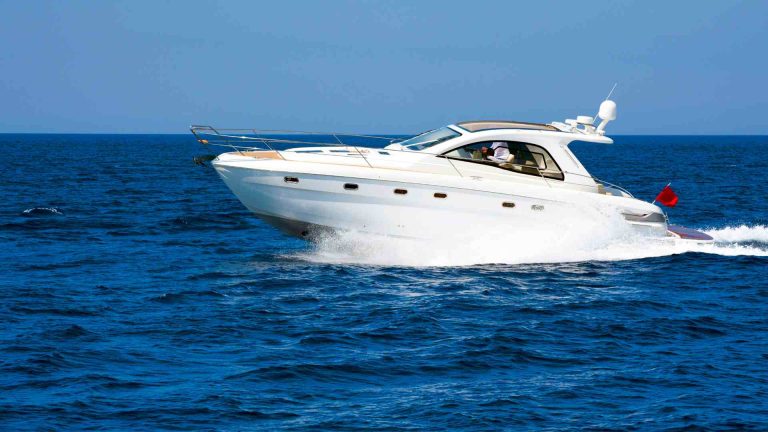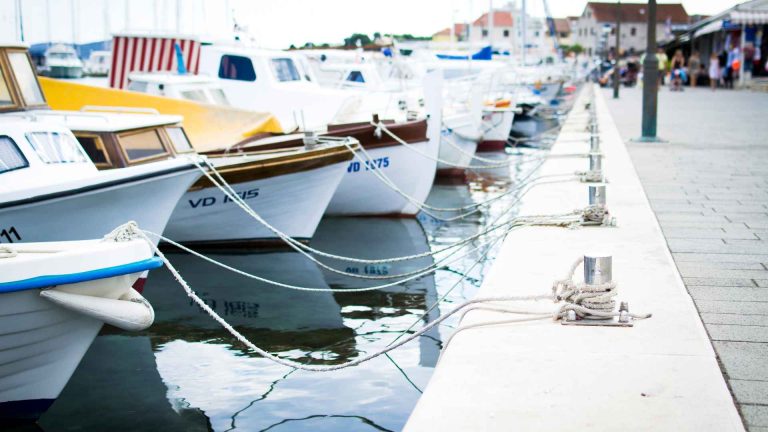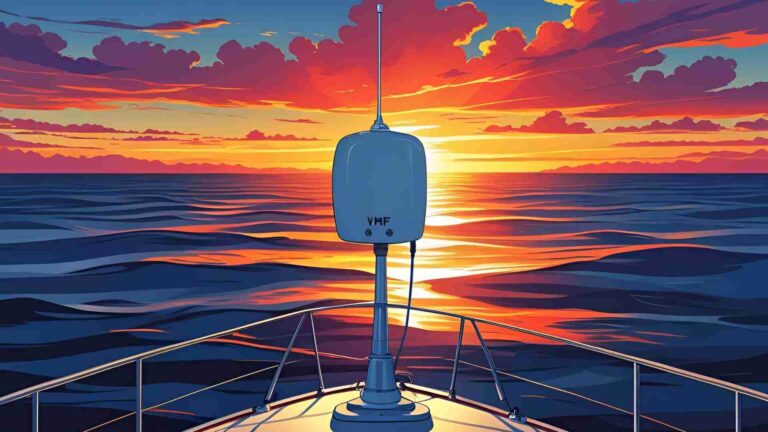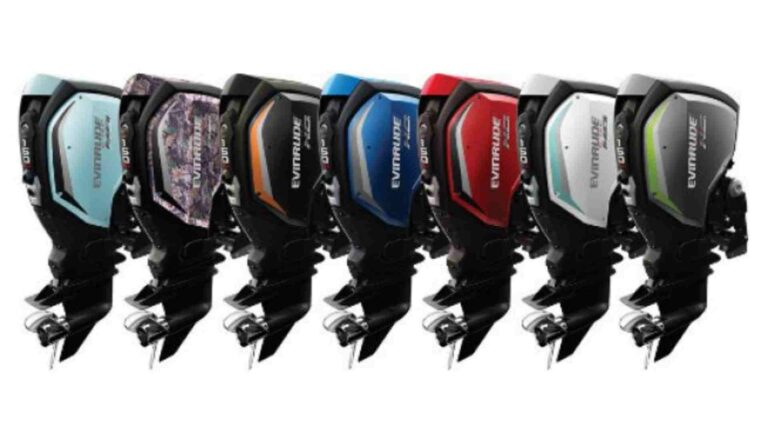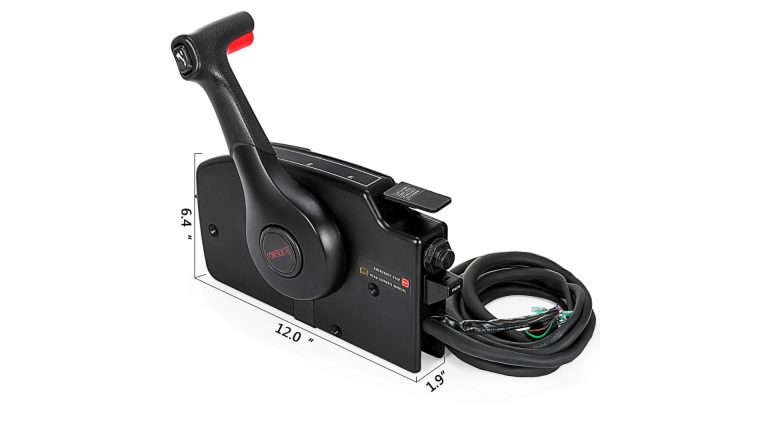Do You Need a License to Drive a Boat in New York? Guide
Picture this: It’s a sunny summer day in the Empire State, and you find yourself cruising along the glistening waters of one of New York’s beautiful lakes or rivers. The wind tousles your hair, and the sound of lapping waves creates a soothing rhythm. Boating in New York offers a delightful escape and a chance to explore the state’s stunning aquatic landscapes. But amidst the excitement, you may find yourself wondering: Do you need a license to drive a boat in New York?
In this article, we’ll delve into the world of boating regulations in the state of New York. We’ll explore whether a license is required, examine exemptions, and emphasize the importance of boating safety education. So, let’s embark on this journey and discover the ins and outs of boat licensing in the Empire State.
Overview of New York State boating laws and regulations

When it comes to boating in New York, it’s crucial to have a clear understanding of the state’s boating laws and regulations. The New York State Parks, Recreation and Historic Preservation agency is responsible for overseeing boating activities and enforcing these regulations.
Here are some key aspects of boating regulations in the state:
- Vessel Registration: All motorized boats, including personal watercraft (PWC) like jet skis, must be registered with the New York State Department of Motor Vehicles (DMV). This registration ensures that vessels meet safety standards and helps in their identification.
- Operating Under the Influence: Boating under the influence of alcohol or drugs is strictly prohibited in New York. The state has set a blood alcohol concentration (BAC) limit of 0.08% for operating a vessel, the same as for driving a vehicle on the road.
- Navigation Rules: Boaters are required to adhere to navigation rules, which include proper speed limits, right-of-way rules, and regulations regarding navigation lights. These rules help maintain order and safety on the water.
- Personal Flotation Devices (PFDs): New York law mandates that every vessel must carry an appropriate-sized life jacket for each person on board. It is essential to wear a PFD while underway, especially for children and weak swimmers.
Importance of adhering to boating regulations for safety and enjoyment
Adhering to boating regulations is paramount for ensuring safety and enhancing the overall boating experience in New York. These regulations are designed to safeguard both boaters and the state’s natural resources. Here are some reasons why compliance with boating regulations is crucial:
- Safety First: Boating regulations are in place to protect everyone on the water, including boaters, swimmers, and other recreational users. By following speed limits, navigation rules, and operating practices, boaters can minimize the risk of accidents and maintain a safe environment.
- Protecting the Environment: New York’s waterways are home to diverse ecosystems and sensitive habitats. Adhering to regulations helps preserve these natural resources, preventing pollution, damage to wildlife, and disruption of delicate ecosystems.
- Avoiding Penalties: Non-compliance with boating regulations can result in penalties and fines. Violations such as boating under the influence, improper vessel registration, or failure to follow navigation rules can lead to legal consequences and potential loss of boating privileges.
- Enhancing the Experience: By following boating regulations, boaters can ensure a pleasant and enjoyable experience on the water. Adhering to speed limits and right-of-way rules reduces congestion and promotes a harmonious boating environment for all.
In New York, boating regulations exist to promote safety, protect the environment, and enhance the overall boating experience. By familiarizing yourself with and adhering to these regulations, you contribute to the well-being of all boaters and the preservation of New York’s beautiful waterways. So, before you set sail, make sure you’re well-versed in the rules and ready to embark on a safe and enjoyable boating adventure.
Let’s see the requirements for a recreational boating license in NY

In New York, most recreational boaters do not need a license to operate a vessel. However, there are certain age and horsepower restrictions that determine whether a boating license is required.
Here’s an overview of the requirements:
- Age Requirement: To operate a motorized vessel without a license, individuals must be at least 18 years old.
- Boating Education Certificate: Individuals who are 10 years of age or older and wish to operate a motorized vessel without adult supervision must obtain a boating education certificate. This certificate can be acquired by completing an approved boating safety course.
Age and horsepower restrictions for boating license
While a recreational boating license is not required for most boaters, there are specific age and horsepower restrictions that determine whether individuals need to obtain a boating license. These restrictions are as follows:
- Individuals aged 14 to 17: If a person is between the ages of 14 and 17, they can operate a motorized vessel without adult supervision if they possess a boating education certificate. This certificate can be obtained by completing an approved boating safety course.
- Individuals under 14 years old: New York state law prohibits individuals under the age of 14 from operating a personal watercraft (PWC), such as a jet ski, regardless of whether they have a boating education certificate.
- Horsepower Restrictions: There are no specific horsepower restrictions for individuals operating a vessel without a license in New York. However, it’s important to note that some insurance providers or rental companies may have their own requirements or restrictions regarding vessel horsepower.
What is the process of obtaining a recreational boating license in NY?
If you fall under the age and operating conditions that require a boating license in New York, you’ll need to complete an approved boating safety course to obtain the necessary boating education certificate. The process typically involves the following steps:
- Find an Approved Course Provider: Visit the New York State Parks website or the New York Office of Parks, Recreation and Historic Preservation to find a list of approved course providers in your area.
- Complete the Boating Safety Course: Enroll in an approved boating safety course either in person or online. The course will cover essential boating knowledge, including navigation rules, equipment requirements, and safe boating practices.
- Pass the Course Exam: After completing the course, you’ll need to pass an exam to demonstrate your understanding of boating safety principles. The exam may be administered online or in person, depending on the course provider.
- Obtain the Boating Education Certificate: Once you pass the exam, you will receive a boating education certificate. This certificate serves as proof of completing the boating safety course and meeting the education requirements to operate a motorized vessel.
Remember, even if you are not required to obtain a recreational boating license, it is highly recommended to voluntarily complete a boating safety course. This will enhance your knowledge and skills, ensuring a safer and more enjoyable boating experience for yourself and others on New York’s waterways.
Are there any specific exemptions from the boating license requirement?

While some individuals may be required to obtain a boating education certificate or a recreational boating license in New York, there are specific exemptions to this requirement. Let’s explore some common scenarios where individuals are exempt from needing a boating license:
- Non-Motorized Watercraft: If you operate a non-motorized watercraft such as a canoe, kayak, rowboat, or paddleboard, you are not required to have a boating license or boating education certificate.
- Commercial Vessel Operators: Individuals operating commercial vessels, such as ferries, charters, or tour boats, are subject to different licensing requirements. They must obtain the appropriate licenses and certifications mandated by the United States Coast Guard (USCG) or other federal agencies.
- Law Enforcement and Emergency Personnel: Authorized law enforcement officers, emergency responders, and certain government officials engaged in their official duties are exempt from the recreational boating license requirement.
Cases where individuals are not required to have a boating license
In addition to the exemptions mentioned above, there are a few cases where individuals are not required to have a boating license to operate a motorized vessel in New York:
- Boating with Adult Supervision: If you are under the age of 18, you can operate a motorized vessel without a license if you are under the direct supervision of a person who is at least 18 years old and possesses a boating education certificate.
- Temporary Visitor Exemption: Visitors from outside of New York who possess a valid out-of-state boating safety certificate that meets or exceeds the requirements of New York can operate a vessel in the state without obtaining a New York boating license.
Importance of boating safety education for all boaters
While certain individuals may be exempt from the boating license requirement in New York, it is essential to emphasize the significance of boating safety education for all boaters. Obtaining a boating education certificate demonstrates a commitment to safety and responsible boating practices. Here are a few reasons why boating safety education is crucial for all boaters:
- Knowledge of Navigation Rules: Boating safety courses cover essential navigation rules, ensuring that boaters understand right-of-way, signaling, and safe navigation practices, contributing to a safer and more orderly boating environment.
- Understanding of Safety Equipment: Boating safety education teaches boaters about the proper use and importance of safety equipment, such as personal flotation devices (PFDs), fire extinguishers, distress signals, and sound-producing devices. This knowledge enhances preparedness in case of emergencies.
- Awareness of Environmental Considerations: Boating safety courses often cover environmental awareness topics, emphasizing the importance of protecting and preserving New York’s waterways, ecosystems, and wildlife. By understanding environmental considerations, boaters can minimize their impact on fragile ecosystems.
- Enhanced Confidence and Competence: Boating safety education equips boaters with the knowledge and skills necessary to handle various situations confidently. It promotes responsible decision-making, reduces risks, and contributes to an overall enjoyable boating experience.
Even if you are exempt from needing a boating license in New York, voluntarily completing a boating safety course and obtaining a boating education certificate is highly recommended. It demonstrates your commitment to safety, responsible boating practices, and respect for New York’s waterways. So, let’s all strive to be informed, responsible boaters who contribute to the preservation and enjoyment of New York’s magnificent boating destinations.
Boating Safety Education in New York
Let’s see the overview of the benefits of boating safety education
Boating safety education plays a vital role in promoting safe and responsible boating practices. Here are some key benefits of boating safety education:
- Knowledge and Skills: Boating safety courses provide boaters with essential knowledge and skills to navigate waterways confidently. Understanding navigation rules, safety equipment usage, and emergency procedures enhances boater competence and preparedness.
- Safety Awareness: Boating safety education raises awareness about potential hazards and risks on the water. It teaches boaters how to identify and mitigate risks, increasing overall safety for themselves, passengers, and other boaters.
- Accident Prevention: By learning proper navigation techniques, understanding the effects of alcohol and drugs on boating, and acquiring knowledge about safe operating practices, boaters can prevent accidents and minimize the risk of injuries or fatalities.
- Environmental Stewardship: Boating safety courses often incorporate environmental education, fostering an understanding of the importance of protecting and preserving New York’s waterways and ecosystems. Boaters learn to minimize their impact on the environment, promoting sustainable boating practices.
Importance of voluntary completion of a boating safety course
Even if you are not legally required to obtain a boating education certificate or license in New York, voluntarily completing a boating safety course is highly recommended. Here’s why:
- Personal Safety: Boating safety courses provide valuable knowledge about safety equipment usage, emergency procedures, and proper boating practices. By voluntarily completing a course, you enhance your safety and that of your passengers.
- Confidence and Competence: Boating safety education builds confidence by equipping you with the necessary skills and knowledge to handle various boating situations. Increased competence leads to a more enjoyable boating experience.
- Responsible Boating: Voluntarily completing a boating safety course demonstrates your commitment to responsible boating. It shows that you value the safety of others, respect boating regulations, and care for the environment.
- Insurance and Rental Requirements: Some insurance providers and boat rental companies may require proof of boating safety education. By completing a course, you ensure compliance with their requirements and avoid potential complications when seeking insurance coverage or renting a vessel.
What are the resources available for boating safety education in NY?
New York offers a range of resources and options for boaters to obtain boating safety education. Here are some avenues for acquiring boating safety education in the state:
- New York State Parks: The New York State Parks website provides information on approved boating safety courses and course providers. Visit their website to find a course near you or explore online options.
- Online Courses: Various online platforms offer approved boating safety courses that you can complete at your own pace. These courses provide flexibility and convenience, allowing you to learn from the comfort of your own home.
- In-person Classes: In-person boating safety classes are available through approved course providers in different locations across New York. These classes offer hands-on training and an opportunity to interact with instructors and fellow boaters.
- U.S. Coast Guard Auxiliary and U.S. Power Squadrons: The U.S. Coast Guard Auxiliary and U.S. Power Squadrons offer boating safety courses throughout the United States, including New York. These organizations are dedicated to promoting boating safety and education.
By accessing these resources and completing a boating safety course, you can enhance your boating knowledge, skills, and safety awareness. Remember, the more informed and prepared you are, the better your boating experience will be. Let’s all strive to be responsible and knowledgeable boaters, ensuring the safety of ourselves, others, and the natural beauty of New York’s waterways.
Special cases where additional licenses or permits may be required

While most recreational boaters in New York do not need a boating license, there are certain special cases where additional licenses or permits may be required. Let’s take a closer look at some of these cases:
- Operating a Commercial Vessel: If you plan to operate a commercial vessel, such as a ferry, charter boat, or tour boat, you may need to obtain specific licenses and certifications. These requirements are regulated by the United States Coast Guard (USCG) and other federal agencies. It is important to consult the USCG and relevant authorities for the specific licensing and permit requirements for commercial boating operations.
- Personal Watercraft (PWC) Operation: Operating a personal watercraft, such as a jet ski, often requires additional requirements. In New York, individuals operating a PWC must possess a boating education certificate, regardless of age. Additionally, they must adhere to specific operating rules and regulations, including maintaining a safe distance from other vessels and following speed restrictions. It is crucial to familiarize yourself with the rules and regulations governing PWC operation to ensure a safe and enjoyable experience.
- Boat Rentals: If you plan to rent a boat, the rental company may have its own requirements and regulations. Some companies may require you to possess a boating education certificate, regardless of age. Others may have additional safety briefings or instructions to ensure that you are familiar with the operation of their specific vessels. Make sure to inquire with the rental company about any licensing, certification, or training requirements they may have.
For detailed and up-to-date information on additional licensing or permit requirements in New York, it is essential to consult the following agencies and resources:
- United States Coast Guard (USCG): Visit the USCG website (www.uscg.mil) or contact the local USCG sector office for information regarding licensing and requirements for operating commercial vessels.
- New York State Parks: The New York State Parks website (www.parks.ny.gov) provides comprehensive information on boating regulations, education requirements, and resources. It also includes a list of approved course providers for boating safety education.
- New York Office of Parks, Recreation, and Historic Preservation: The New York Office of Parks, Recreation, and Historic Preservation is responsible for overseeing boating regulations and education in the state. They can provide further information and guidance on licensing and permit requirements.
Remember, the licensing and permit requirements may vary depending on the type of vessel and the specific activities you plan to engage in. Always consult the appropriate agencies and resources to ensure you have the necessary licenses and permits for your boating activities in New York. Safe and responsible boating is a shared responsibility, and adhering to all regulations and requirements helps protect yourself, others, and the beautiful waterways of New York.
Watch do I need license to operate a boat | Video
Top 5 FAQs answers related to do you need a license to drive a boat in NY
Do I need a license to drive a boat in New York?
What is a boating education certificate?
Are there any age restrictions for operating a boat in New York?
Are there any exceptions to the boating education certificate requirement?
Where can I obtain a boating education certificate in New York?
Conclusion
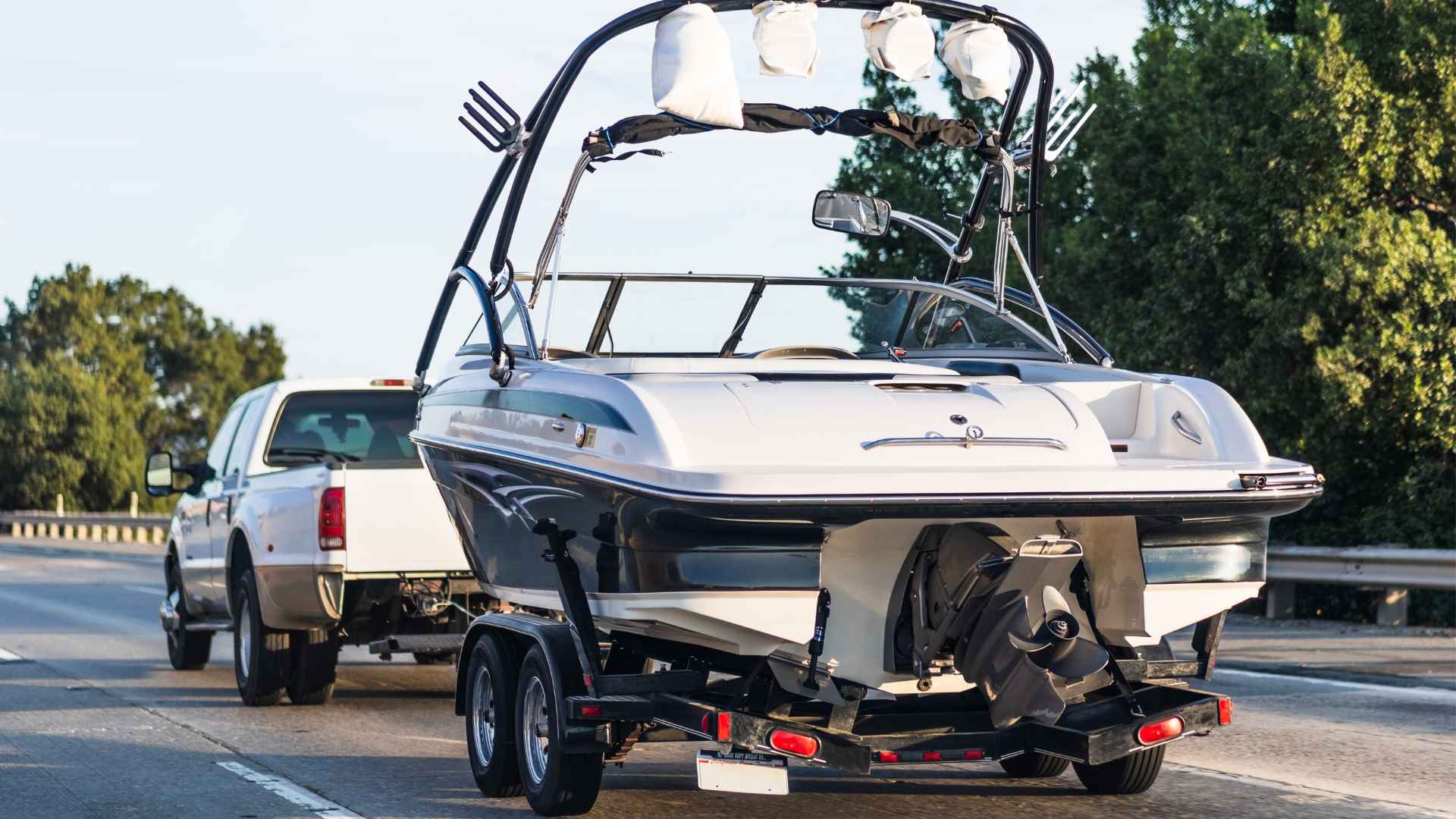
In conclusion, it is important to recap the key points discussed in this article regarding licensing to drive a boat in New York:
- Most recreational boaters in New York do not need a license to operate a boat.
- Individuals born on or after May 1, 1996, are required to have a boating education certificate to operate a motorized vessel.
- Boating safety education is crucial for all boaters, regardless of the legal requirements. It enhances knowledge, skills, and safety awareness on the water.
- While non-motorized watercraft are exempt from the boating education certificate requirement, individuals operating a personal watercraft (PWC) must possess a boating education certificate, irrespective of age.
Understanding and complying with boating regulations in New York is essential for the safety and enjoyment of everyone on the water. By prioritizing boating safety education, boaters can acquire the necessary knowledge and skills to navigate waterways responsibly.
We strongly encourage boaters to voluntarily complete a boating safety course and obtain a boating education certificate. These courses provide valuable information on navigation rules, safety equipment usage, emergency procedures, and environmental stewardship.
By adhering to boating regulations, boaters not only ensure their own safety but also contribute to the preservation of New York’s beautiful waterways and ecosystems. Let’s strive to make every boating experience safe, enjoyable, and respectful of the environment.
Remember, whether you are a seasoned boater or a beginner, responsible boating practices and continuous learning are paramount. Stay informed, stay safe, and have a fantastic time exploring the breathtaking waterways of New York.
Share Do You Need a License to Drive a Boat in New York? Guide with your friends and Leave a comment below with your thoughts.
Read Where Should Fire Extinguishers Be Stored on a Boat: Guide until we meet in the next article.

